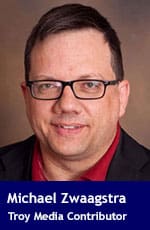Education faculties in Manitoba increasingly prioritize ideology over expertise in core subjects

For interview requests, click here
Judging by Manitoba’s growing deficit, math doesn’t appear to be the government’s strong suit. Now the government seems to want all Manitobans to have equally poor math skills.
Last month, the province quietly removed all subject requirements for entry into a Bachelor of Education program. No longer will prospective teachers need to complete a prescribed number of courses in “teachable” subjects; in fact, they won’t even have to take a single math or English course.
This means that a candidate who took a three-year bachelor’s degree in gender studies and then completed a two-year teacher education degree is considered just as qualified to become a teacher as a candidate who completed an honours degree in mathematics, physics, or chemistry. No wonder people are worried.
For example, University of Winnipeg math professor Anna Stokke has long raised the alarm about the declining math skills of Manitoba students. In fact, Stokke played a key role in convincing the previous NDP government to increase the required number of math courses for prospective teachers from one to two in 2015.
| Recommended |
| How progressive activism is undermining education
|
| Not all teachers are left-wing ideologues
|
| Schools should educate rather than indoctrinate
|
Now, the current government is moving in the opposite direction by cutting the required math courses from two to zero. I’m no mathematician, but that looks like a decrease for me.
Sadly, some education professors are completely on board with this change. Martha Koch, an education professor at the University of Manitoba, publicly claimed that requiring students to complete more undergraduate courses in math “sometimes results in worse teachers in early and middle years mathematics.”
This comment is a prime example of the anti-knowledge bias pervading North American education faculties. The last thing faculties of education want is for teachers to be the primary source of knowledge in the classroom.
That is why we cannot trust education faculties. Having taken many undergraduate and graduate education courses myself, I can safely say that most of them are worse than useless. In fact, you get stupider because of taking them.
Don’t just take my word for it. Ask any teacher how they felt about their Bachelor of Education program. Chances are they will praise their teaching practicum, where they worked in real classrooms with real students, but they will dismiss most of their required education courses as useless theories.
I shudder to think about prospective teachers taking undergraduate degrees in narrow and esoteric fields such as gender studies and then completing a Bachelor of Education program with courses that promote all the wrong ideas about how students learn. While those teachers will be ready for social justice activism, they won’t have a foggy clue about how to teach real subjects such as math, science, or history.
The reality is that teachers must know the subjects they teach well. Since there is a high probability that early and middle school teachers will teach math at some point, they should complete at least one or two math courses before they are admitted into a faculty of education.
As for high school teachers, it makes sense to expect them to complete a major and a minor in subjects that are taught in Manitoba schools. This shouldn’t be too much to ask.
Lowering teacher education standards might get more bodies into school classrooms, but it won’t help raise student achievement.
Michael Zwaagstra is a public high school teacher and a senior fellow at the Frontier Centre for Public Policy.
Explore more on Manitoba education, Manitoba politics, Manitoba NDP, Kinew government
The views, opinions, and positions expressed by our columnists and contributors are solely their own and do not necessarily reflect those of our publication.
© Troy Media
Troy Media is committed to empowering Canadian community news outlets by providing independent, insightful analysis and commentary. Our mission is to support local media in building an informed and engaged public by delivering reliable content that strengthens community connections, enriches national conversations, and helps Canadians learn from and understand each other better.



